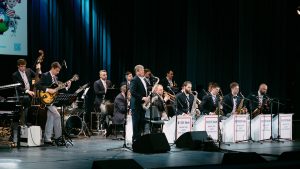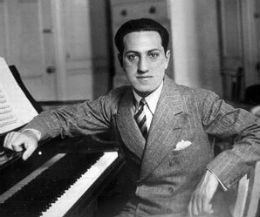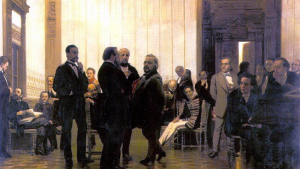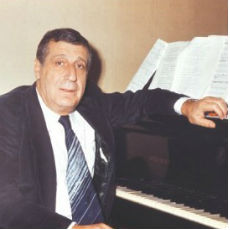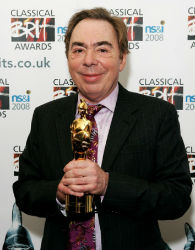The most famous Russian operas abroad
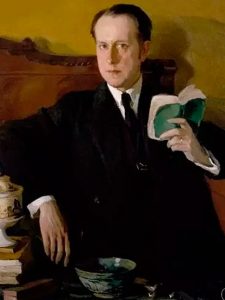 Rare theater today does without the Russian repertoire: classical operas by Pyotr Tchaikovsky and Nikolai Rimsky-Korsakov, Modest Mussorgsky and Igor Stravinsky, Sergei Prokofiev and Dmitry Shostakovich are staged. Portal “Kultura.RF” studied posters of different years in search of domestic works, loved in the West – from the XIX century to the present day.
Rare theater today does without the Russian repertoire: classical operas by Pyotr Tchaikovsky and Nikolai Rimsky-Korsakov, Modest Mussorgsky and Igor Stravinsky, Sergei Prokofiev and Dmitry Shostakovich are staged. Portal “Kultura.RF” studied posters of different years in search of domestic works, loved in the West – from the XIX century to the present day.
XIX century
In 1844, composer Alexei Lvov, director of the St. Petersburg Court Chapel Singing Chapel, presented the opera Bianca and Gualtiero in the Royal Theater of Dresden. 10 years later, in Weimar, Anton Rubinstein’s opera “Siberian Hunters” was shown – conducted by the famous composer and pianist Ferenc Liszt. These were the first operas that gained recognition abroad. True, Rubinstein is today known from another opera, The Demon, and Lvov, as the author of the hymn, God Save the Tsar!
By the end of the 19th century, Russian music was played in almost all the major halls of Europe and the USA — Mikhail Glinka, Anton Rubinstein and Pyotr Tchaikovsky became her face in the West. The European spectator saw the works of Glinka “Life for the Tsar” and “Ruslan and Lyudmila” in 1866 and 1867 respectively – the performances were held in Prague. In the 1880s – 90s, the European premieres of the operas by Pyotr Tchaikovsky “The Maid of Orleans”, “Eugene Onegin” and “The Queen of Spades” took place there.
“Glinka, like Bortnyansky, learned from basurman … but only forms. The inner spirit of his works, the content of his music is completely original. Glinka wrote really Russian operas and created a completely new, if not school, then at least school music, to the sphere of which I belong and am a creature of Glinka. ”
Pyotr Tchaikovsky. From a letter to the publisher Peter Jurgenson
In 1887, Anton Rubinstein’s opera “Nero” was performed in New York. A year later, despite the tradition of translating the libretto, in London they performed his own “Demon” in the original.
1900s – 1930s
On March 5, 1910, at the New York Metropolitan Opera for the first time in America, Tchaikovsky’s The Queen of Spades was presented in German. Austrian composer Gustav Mahler conducted the premiere, and the main parts performed the stars of that time – Leo Slezak and Emmy Destinn. In 1913, Modest Musorgsky’s opera Boris Godunov sounded in the Metropolitan, and in 1917 Prince Alexander Igor by Borodin. In 1920, Eugene Onegin was introduced to the New York public in Italian and with Italian stars Claudia Muzio and Giuseppe De Luca. American audiences also watched Nikolai Rimsky-Korsakov’s The Snow Maiden and the Sorochinsky Fair comic opera by Mussorgsky.
At the same time, Russian music won the young Salzburg Festival, which had already gained European fame: a delegation from Leningrad arrived in the city of Mozart in 1928. Opera singer Nikolai Chesnokov sang the part of Pankrasio in the modern comic opera of the Austrian composer Bernhard Paumgartner “The Cave of Salamanca”. Libretto in Russian to the opera was written by the Soviet director and tenor Emmanuel Kaplan. He also sang the part of Kashchei in Kashchei the Immortal’s opera by Rimsky-Korsakov and staged Alexander Dargomyzhsky’s The Stone Guest. The Kashcheevna party at the Salzburg Festival in 1928 was performed by the future star of the Academic Opera and Ballet Theater (today the Mariinsky Theater) Sofia Preobrazhenskaya.
1930-1990s
Despite the world wars and the Iron Curtain, ballets and instrumental works by Russian composers continued to appear on foreign posters throughout the 20th century. But with the operas it was different: from the 1930s to the 1990s, they practically did not go in European theaters – they staged only popular performances. For example, in Salzburg, they performed “Boris Godunov” directed by the head of the festival Herbert von Karajan: the opera went on for three years in a row – from 1965 to 1967. In the title role, the Bulgarian bass Nikolai Gyaurov shone, the role of the Pretender, Grigory Otrepyev, was played by the Bolshoi Tenor Alexei Maslennikov. In 1971, the recording of “Boris Godunov” was released under the management of an Austrian conductor with Maslennikov in the party of the Holy Fool and Galina Vishnevskaya as Marina Mnishek. The next time the Salzburg Festival presented the Russian opera only in 1994 – and it was Boris Borisov again.
More often than others during the Cold War, the main theater of America – the Metropolitan Opera – addressed the Russian heritage. Several times he opened the season with Russian titles: in 1943 and 1977 with “Boris Godunov”, in 1957 and 2013 with “Eugene Onegin”. In 1950, Modest Mussorgsky’s Khovanshchina was placed here, but in English. The set for the play was created by the famous Russian émigré artist Mstislav Dobuzhinsky.
